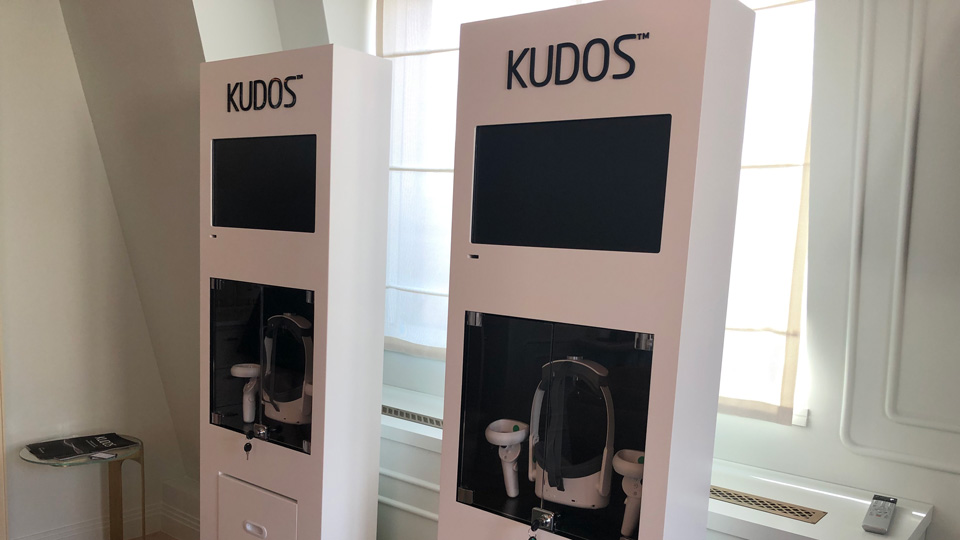- OT
- Industry
- Eyewear and lenses
- Jai Kudo Lenses introduce Kudos bespoke lens experience
Jai Kudo Lenses introduce Kudos bespoke lens experience
The Kudos system uses VR to track gaze dynamics and design bespoke progressive lenses, also providing a coaching experience to introduce new wearers to the lens type

19 October 2023
Jai Kudo Lenses, part of the Millmead Group, has introduced Kudos, a new progressive lens solution for practices and patients.
The Kudos system uses virtual reality (VR) technology to track gaze dynamics with the aim of creating a progressive lens that is bespoke to the wearer.
James Conway, CEO of Millmead Optical Group, told OT that the launch of Kudos has been the culmination of “many months of work.”
“From October, we at Jai Kudo Lenses are extremely excited to be launching pioneering technology for optical dispensing to the UK market for the first time,” he said. “This will give independent practices a real point of difference to improve the experience of the patient and provide them with completely personalised progressive lenses based on their own individual gaze dynamics.”
Using a VR headset, patients are guided through a three-minute experience, while the system captures the points and directions of gaze.
This data is analysed and turned into frequency of use heat maps covering the near, intermediate and distance visual ranges.
Based on this data, a 19-digit code is created and sent to the Jai Kudo Lenses lab to create a bespoke lens, minimising oblique astigmatism and providing a wider natural vision.

The company noted that the reasons presbyopes do not use progressive lenses can range from adaptation issues to negative word of mouth comments, or a lack of confidence.
A partner survey of 126 Kudos users in five countries in Europe found that one in three did not know what a progressive lens was, and 23% had concerns after hearing from friends that it was difficult to adapt to progressive lenses.
The VR solution hopes to address some of these concerns, by engaging patients in the design of their own lenses and introducing this type of lens.
The Kudos system also includes Kudos Coach, a VR simulation that provides patients with an experience of progressive lenses.
Introducing patients to the lenses, and how they work in simulated ‘real life’ settings, could help to break down misconceptions around varifocals, as well as support adaptation to new lenses, the company suggests.
Using the VR headset, patients can learn about different solutions for presbyopia and opt for an unguided experience or a tutorial. In a simulated environment, the wearer can then learn how progressive lenses work.
As an addition to the VR headset, the Kudos Freestanding Unit features a built-in screen and stool, providing a showcase for the equipment in practice. The screen also enables the practitioner to observe what the patient is experiencing through the headset in real-time.
Advertisement


Comments (0)
You must be logged in to join the discussion. Log in